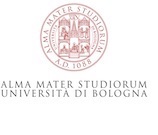CRISTINA DEMARIAThe Anti-Human and the Un-Human: New Subjectivities and the Act of TortureAFTERNOON COURSE (Aula Seminari 2)
|
|
|
The questions what is a human being, and what constitute humanity are currently undergoing several both related and un-related philosophical and political revisions. One of these - if we follow the feminist philosopher Rosi Braidotti - is to think of anti-humanism and the post-human condition as ways to reformulate the structure of the living matter as a vital power in itself, going beyond a constructivist approach to both subjects and matter. Anti-humanism problematizes the self-representation and the imagination of the humanistic definition of the human, especially the idea of a subject that coincides with its transcendental conscience. Yet, what does it happen when we move from a philosophical interrogation of the human to a political, semiotic and historical one? When, for example, we have to deal with conflict and post-conflict situations whereby not only women and man, but also animals, objects and landscapes can be both victims and torturers; and whereby torture is the ultimate act that renders the human in-human? After introducing the feminist anti-human perspective, and with the help of several case-studies, the course will explore the ways in which we can envisage the act of torture, and the figures of female, male and “material” victims and perpetrators, from a post-human stance on the un-human. Cristina Demaria is Associate Professor of Semiotics in the Department of Philosophy and Communication Studies of the University of Bologna, where she teaches Semiotics of conflict and Semiotics of Media. She has worked extensively on gender and visual studies and on feminist theories of subjectivity and materiality. She is also part of a research group on memory and cultural traumas and has wrote two books on the subject: Semiotics of memory. Analysis of post-conflict, and Trauma, the Archive and the Witness, in which gender studies meet with memory studies in the reading of the ways in which the figures of the victim and that of the perpetrator are represented and exploited in different political context. |




